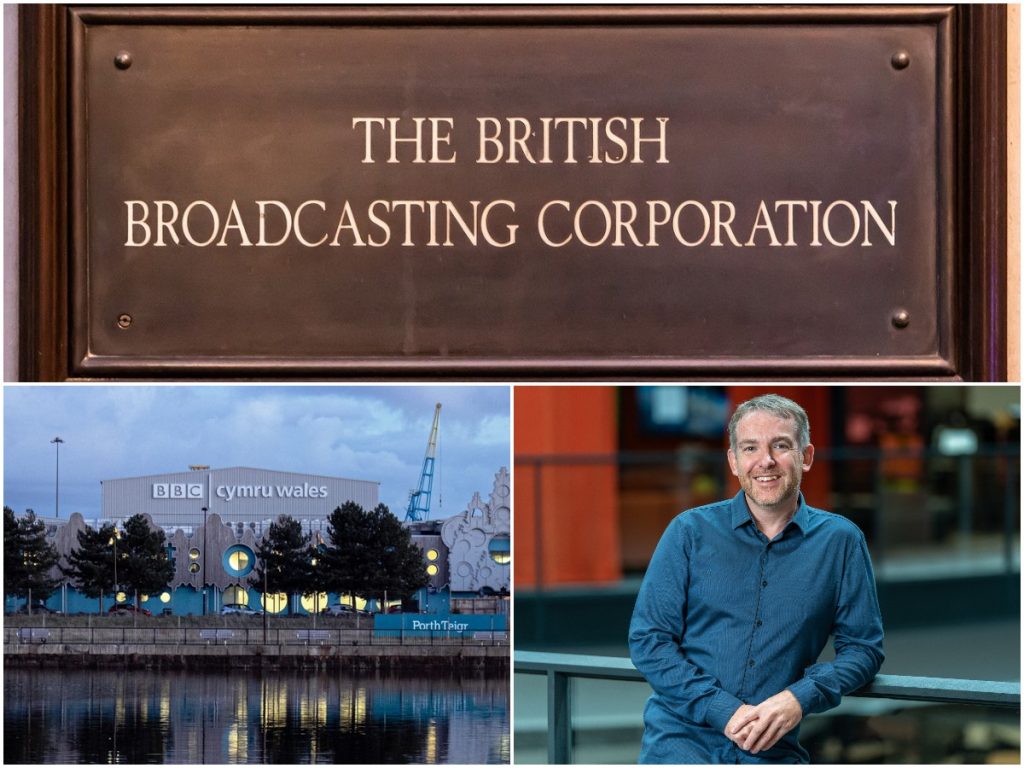Rhodri Talfan Davies outlines the reforms that will root the BBC outside of London.
The Covid crisis has underlined the value of public service broadcasting like never before.
News information has rarely felt so precious – and our role in lifting and entertaining a nation has never felt so important.
But as we emerge slowly from the clutches of the pandemic, it’s also clear how the BBC – and the other Public Service Broadcasters – can play a critical role in supporting the social, cultural and economic recovery of each of all four nations of the UK over the coming years.
The six-year plan to recreate the BBC as a truly UK-wide organisation announced last week is a radical, ‘top-to-bottom’ transformation that will affect every part of the BBC and every part of the UK.
It will move the creative and journalistic centre of the BBC away from London to a much more distributed model – decentralising power and decision-making across the four nations.
Taken together, these proposals mean the BBC will cumulatively spend at least an extra £700m outside London by 2027/28.
“Newsnight will be presented regularly from Cardiff, Glasgow and Belfast.”
We estimate they will generate an additional economic benefit of over £850 million in the economy.
And, for the first time in our history, we will make the clear majority of network TV beyond London.
We will set a target of at least 60% of network TV commissions by spend to be made across the UK, beyond London, by the end of the Charter, up from 50% today.
But, this time, our plan is about much more than moving people and spend – it is also about a creative transformation on-air.
Authentic, passionate storytelling from across all our nations is what will truly make the BBC different to anyone else in the coming years. It demonstrates to audiences that we are for them. That we understand where they are coming from, and how they see the world.
So the extra money we invest across the UK will transform our portrayal of different parts of the UK across drama, comedy and factual.
Over the next three years, for example, we’ll deliver at least twenty network drama and comedy series set in Scotland, Wales or Northern Ireland.
To support this, we’re appointing a new commissioning role in Wales to lead on new scripted projects, and we’ll be announcing a new partnership with Creative Wales very shortly.
We’re also bringing together our commissioning teams across network TV and the devolved nations to deliver more ambitious creative projects together.
This new partnership approach will devolve decision-making power outside London and will double the number of co-commissions from Wales which appear on UK-wide channels.
In news, we also want to decentralise our approach to network production. So we will relocate four of our specialist network story teams across the UK.
The Climate and Science team will move to Cardiff; the Technology team to Glasgow; Learning and Identity to Leeds. World Service Business and Radio Current Affairs will be in Salford.
In Wales, the Climate & Science news team will also be joined by BBC Radio’s science production team – creating a global centre of excellence for climate and science journalism under our own roof.
There’s no bigger story for the world – and I’m delighted that we can lead the way from Wales.
We’re also going to see many of our biggest network news strands getting out of London more often.
The Today programme will be co-presented from outside London for at least 100 episodes a year. And Newsnight will be presented regularly from Cardiff, Glasgow and Belfast.
Our ambitions stretch beyond network news too. We also plan to invest in more community-based reporting across the UK.
We want to transform the quality and depth of our online reporting across the UK, and we’re planning a new network of over 100 digital reporters to take us up close and personal in some of the UK’s most under-served communities.
“We will double our commitment to apprentices, supporting 1,000 apprentices across the UK each year.”
We’ll also bring news from Wales to the heart of BBC News’ online service.
BBC News online in the UK will move from a one-size-fits-all approach to provide a personalised service that can foreground the local, regional and national interests of the user.
In fact, across BBC Player, BBC News, BBC Sport and BBC Sounds, we are going to look and feel more local and rooted than ever before.
Finally, we will double our commitment to apprentices, supporting 1,000 apprentices across the UK each year. We want to pilot an Apprentice Training Agency so we can maximise the impact we can have on the local creative economy. And more details of this will be shared shortly.
It’s a big plan – the biggest creative reshaping of the BBC’s footprint in our history.
It will deliver a transformation on air and a significant multiplier effect across the UK nations – bringing value, investment, education, jobs, skills, apprenticeships, news, technology development and creative inspiration to all four nations of the UK.
All articles published on the welsh agenda are subject to IWA’s disclaimer.





